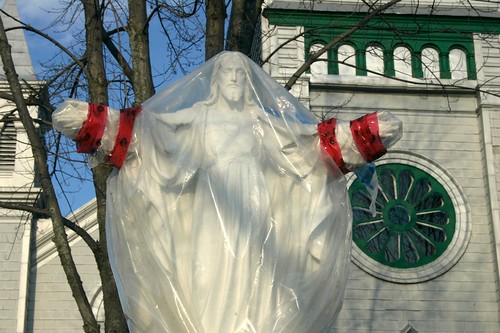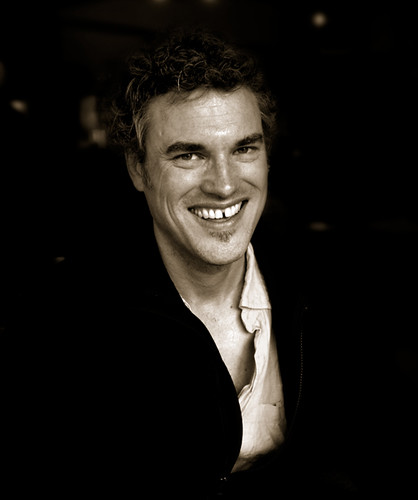My friend Stefan Nitoslawski recently launched a film Liberty, Equality, Accommodation on a topic which is quite hot both in Quebec and elsewhere: ‘accomodement raisonnable,’ or the measures different bodies in society have to take to ensure peaceful coexistance and mutual respect betwen peoples and communities. Stefan followed the hearings Bouchard-Taylor Commission, co-chaired by the philosopher Charles Taylor, as well as some very interesting characters.
The views of the small-time politicians from Hérouxville are counterposed to those of two strong-minded muslim women. This film – produced by Paul Lapointe – deals with a topic which is covered in the press daily. But no broadcaster showed interest, and Stefan and Paul had to finish it with their own means. A sign of the times? I asked Stefan a few questions.
You have worked with many directors and observed them at work while at the same time making your contribution to the film as a DOP, as well as directing your own films. How is one different from the other?
For me wearing the directors hat or the DPs is very different. As director, I find that I’m juggling with may more aspects of the film. Content and structure are my focus but I also have to think of schedules, crew, relationships with the characters, research, budget, etc. Consequently, I’m thinking in broader terms and of many different aspects of the production. This is a challenge for me, as I find I have to think wide and then focus quickly on a specific task such as how to capture a given scene.
As DP, the focus is on the image and supporting the director and crew in getting the material needed for the film. It’s a more contained function. On this documentary I was often alone with my camera and sometimes I felt I was juggling too much but at others I felt a certain freedom to capture what I felt was important quickly and simply.
What were the main challenges? (idem)
The main challenge was that the film received no financing. We received some support from rental houses, post production facilities and the ACIC program at the NFB for which I’m very grateful. Nonetheless this put a limit on what we could do in production and in editing and put a huge strain on the producer Paul Lapointe, the editor Carole Alain and myself. This film could not have existed if it were not for their dedicated commitment and belief that this is an essential film to make. It is the only film made about the Bouchard-Taylor Commission which is one of the important stepping stones in our society since the Quiet Revolution.
How do you see the contribution of the Bouchard-Taylor Commission ?
The value of the Commission is that it gave people the opportunity to learn about issues surrounding the notion of reasonable accommodation and express themselves about their identity, be it coming from the perspective of the majority or of the minority. The basic issue was how to find common ground between religious minorities and the secular majority. A potentially explosive subject. The Commission showed that we can tackle very difficult debates expressing what we think while taking time to listen to the other. I believe that this remarkable example of participatory democracy and the maturity of our society.
How did the discussion go after the screening in Quebec City, and what did Quebec Solidaire’s Amir Khadir ( a leftist) and the PQ’s Louise Beaudoin ( a nationalist) have to say ?
The discussion with Amir Khadir and Louise Beaudoin was fascinating. They both underlined the importance of the film in showing that the citizens were concerned and engaged in the debate and yet the government did not followed suit in creating a White Paper on secularism. Both Louise and Amir are on the parliamentary committee for Bill 94 (about ostentatious symbols in the public administration) and both feel that the discussions in this committee are endless and would have benefited from a clearer direction from the National Assembly. Furthermore, Louise Beaudoin said that she felt somewhat reconciled with Bouchard after having seen the film. I felt that was telling.
What have been the main issues in the discussions after the film ?
The discussions after the film were very interesting. On one hand, many of the concerns that were expressed during the commission came up again which signaled to me that these questions are still very much on peoples minds. But I also feel that there is an evolution. People are much more aware of the issues and have a clearer point of view. I also feel that after having seen the film, people recognize that, as a society, we have successfully carried out a challenging debate of which they can be proud of.
For more information on the documentary “Liberté, égalité, accommodements” please visit the Facebook page here.
Thanks to Tobi Elliott for her help with this blog.

